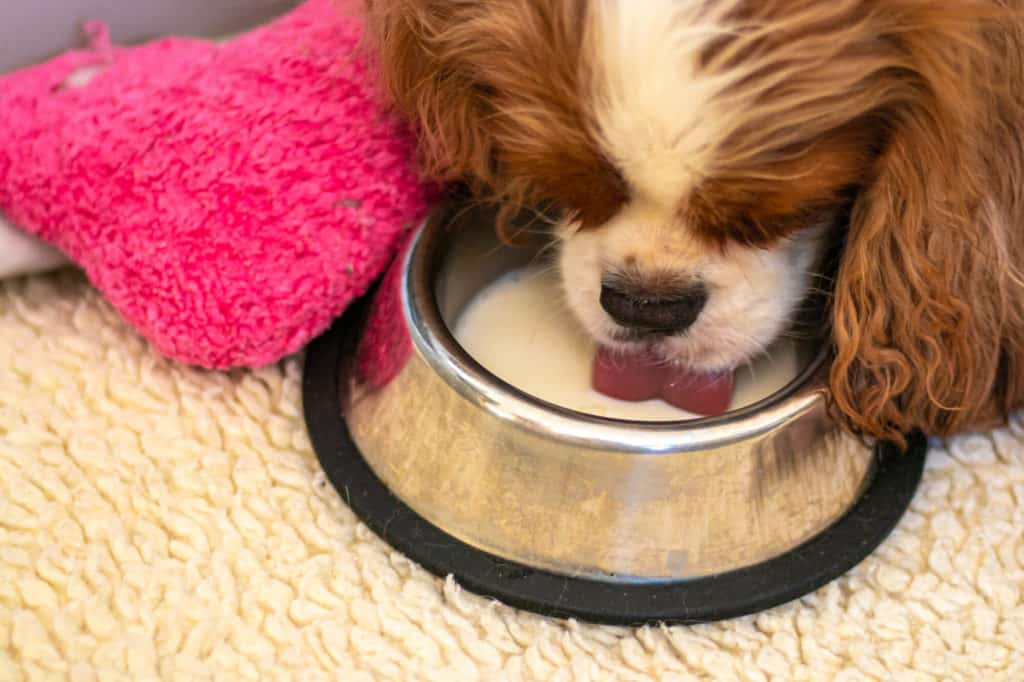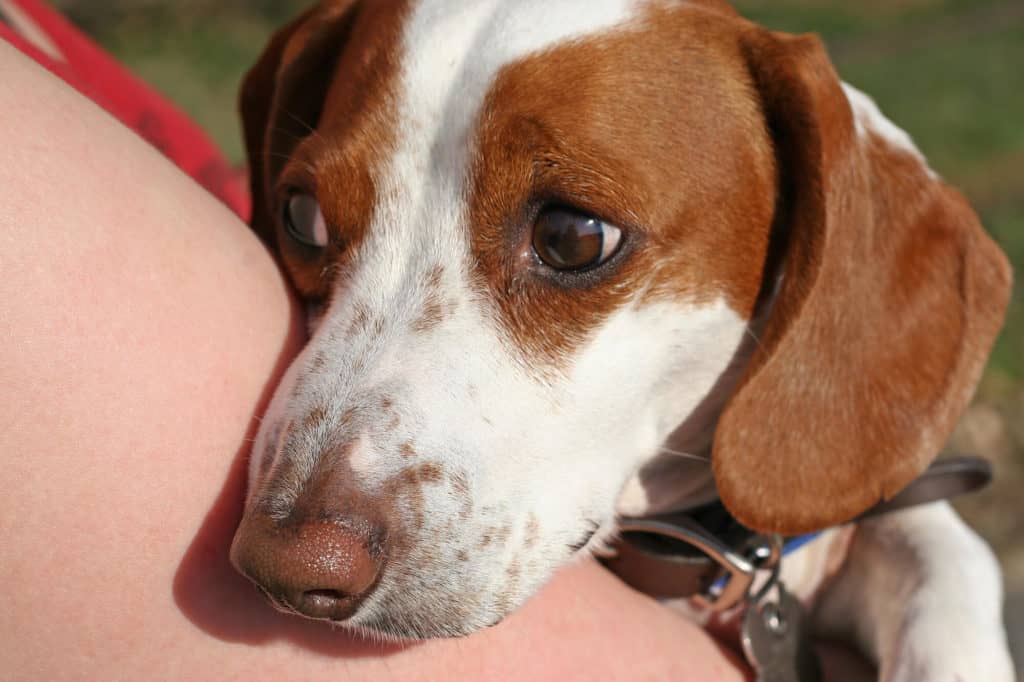Puppy poop remains soft for around four weeks after birth. That soft poop usually stems from the diet. Puppies rely on the mother’s breast milk or formula for the first four weeks of their life.
When puppies start to teeth around three weeks old, they may start to ingest solid foods. That’s when their poop begins to harden.
Soft poop will disappear as your puppy gets older, but you will see it again from time to time. Should you be worried? When is it normal, and when is it abnormal?
You’ll get the answers to those questions in exchange for five minutes of your time.
Is Soft Puppy Poop Normal?

As we mentioned earlier, soft puppy poop is normal within the first four months of birth. Aside from the soft consistency, it should have a light brown color.
As your puppy gets older, the poop should gradually harden until it reaches the right consistency.
Depending on how early you have introduced solid food into your puppy’s diet, the softness of his poop should gradually reduce.
After six months, your puppy’s poop should be more solid and shouldn’t leave stains on the ground after you pick it up.
Additionally, it should have a slightly darker brown color than it was when your puppy was less than four-months-old.
So, to round this up, we can say that the following criteria are normal for your puppy as long as he’s below five months of age:
- The poop is soft, and it stains the ground
- The poop hardens as you introduce solid foods and reduce milk
- The light brown color that gets darker as the puppy gets older
Helpful Dog Training Resource:
For help with training your dog, you should take a look at The Online Dog Trainer by Doggy Dan. Doggy Dan is an expert Dog Trainer based in New Zealand. His online resource contains Hundreds of Excellent Dog Training Videos that will take you step-by-step through the process of developing a healthy, happy well-behaved dog.
When Is Soft Poop in Adult Dogs Normal?
Aside from being a normal sight in puppies under four-months-old, soft poop is also an occasional occurrence in adult dogs and shouldn’t be a reason for concern.
As long as you’re regularly taking your dog to the vet, occasional soft poop is fine. Here are the reasons why your dog might have some soft poop from time to time:
Sudden Increase in Fluid Intake
Everybody loses a lot of body fluids on those hot summer days and tries to compensate for that by drinking extra water.
That extra water can cause diarrhea and render your dog’s poop soft. Normally, that shouldn’t concern you so much.
Still, if your dog drinks water excessively when there’s no need to, chances are that he’s suffering from something else. A visit to the vet could reveal more.
Sudden Change in Diet
Many new owners make the mistake of abruptly changing the diet of their dogs. This may not cause a problem for most dogs but can give some others a bad case of diarrhea.
It’s not fun to have that soft poop lying around, but if the case is a sudden food change, you shouldn’t worry too much.
If you decide to change your dog’s diet, make sure to do that gradually to avoid any complications.
Excessive Consumption of Dairy Products

Milk and cheese could be good treats for your dogs to keep that food variety going. They’re safe in small quantities and shouldn’t cause problems.
Excessive quantities, on the other hand, may give your pup the runs. Additionally, dogs who have lactose intolerance will produce soft poop even if they ingest small amounts of dairy products.
When Is Soft Poop in Adult Dogs Abnormal?
At this point, you should understand that some dogs have softer poop than usual and that it doesn’t denote any bad physical condition.
If you have one of those dogs, then the usual soft poop is fine.
On the other hand, if your dog’s poop is solid but suddenly turned soft, this may be a sign that something is wrong.
When that happens, a visit to the vet is always a good idea. But, before you do so, make sure that you rule out the reasons for normal soft poop in adult dogs.
That being said, if your dog’s poop stays soft or transits into diarrhea, you should have him checked by a vet.
Soft poop can have many reasons; here are the most common ones:
Infections
Infections are one of the most common causes of soft poop or diarrhea. Many types of microorganisms can infect your dog and cause soft poop. Those are:
1. Bacteria
Most living organisms have some bacteria living inside their bodies. When that bacteria gets more than the body can tolerate, it may lead to bacteremia or septicemia.
In dogs, soft poop could be an early sign that the bacterial levels are more than they should be.
2. Viruses
Unlike bacteria, viruses shouldn’t exist in the body of a living organism, even in small amounts. Viruses are an extra threat to those unvaccinated puppies.
If your puppy is behind his vaccination schedule and soft poop starts to appear, you may need to take him to the vet to rule out the viral infection possibility.
3. Parasites
Parasites aren’t as common in dogs as bacterial and viral infections. Unfortunately, getting rid of them is a bit more complicated than the smaller-sized bacteria and viruses.
These parasites come from contaminated food or overly dirty environments. Do your best to ensure a clean life for your dog, and parasites should never visit.
Helpful Dog Health Resource:
Note: Our Health is #1 Priority. It should be no different for your dog. But you need to help him. The Ultimate Guide to Dog Health is the answer. This handy guide will help you recognize the symptoms of the health problems above. Get the knowledge to stay ahead of these terrible issues that can rob your lovely dog from vigor and life. Help your friend make it to 14 yrs+ without pain and suffering.
Food Allergies
Food allergy is a typical soft poop causer. Luckily, it’s often effortless to pinpoint.
If you introduce a new food into your dog’s diet and notice soft poop right away, chances are that your dog is allergic to that particular food.
Many foods are safe for dogs to consume, but even if you’re introducing safe foods, you should only try one food at a time.
That way, if allergies do appear, you’ll be able to quickly identify the food that caused them.
Stress

Stress can lead to various types of physical problems in any living organism.
A stressed or distressed puppy could show various signs and symptoms. One of these symptoms could be stress.
Stress isn’t easy to detect as it’s not an underlying medical condition.
In most cases, you’ll need to take your dog to the vet and eliminate all other possible causes until stress becomes the diagnosis using the method of elimination.

Paul has been creating content for the dog niche for many years. The information he shares comes his first hand experience growing up in dog lovers household and then owning multiple dog breeds of his own as an adult. Paul enjoys doing the hard research to collect, analyze and present our dogtemperament.com readers with the best answers to their questions.